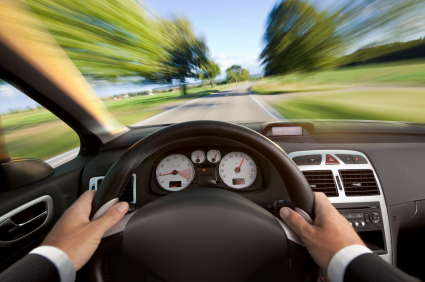Stephen Axel, PCC
SVP, Robertson Lowstuter, Inc.
The real answer to the equation above is ‘slower.’ If you look up the antonym of ‘faster’ you get ‘slower, plodding, or unhurried.’ So why have I answered it ‘smarter’?
 Our fast world is rapidly accelerating the number of errors we make. Whether it is overlooking the real risks involved (‘a good hedge’ turns into a $2 billion error by JP Morgan), not carefully reviewing an SEC document (Yahoo President fired for resume error), or even sending a business email to the wrong person (anyone of us), speed is infecting our lives. Speed magnifies our stress, reduces our mental health, and reinforces itself by forcing us to ‘catch up’ from prior error(s) we made or to feel like we are always one step behind.
Our fast world is rapidly accelerating the number of errors we make. Whether it is overlooking the real risks involved (‘a good hedge’ turns into a $2 billion error by JP Morgan), not carefully reviewing an SEC document (Yahoo President fired for resume error), or even sending a business email to the wrong person (anyone of us), speed is infecting our lives. Speed magnifies our stress, reduces our mental health, and reinforces itself by forcing us to ‘catch up’ from prior error(s) we made or to feel like we are always one step behind.
Why has moving faster become such an imperative? Time appears to be shrinking and we can’t seem to squeeze enough into our 24-hour day…even though time is constant. We are bombarded by a continuous flood of new information, ‘smarter’ phones, instant text messages, and it is downloaded at 4G or with high speed cable. Everything is coming at us faster, so we accelerate to compensate.
 Yet for all the hours, minutes, and even seconds being saved, we are losing out when it comes to relationships, our personal safety, physical health, and our peace of mind. Time can work for us, or against us, and we get to choose which one wins. It’s time to be smarter, to move a little slower and experience life more deeply and richly.
Yet for all the hours, minutes, and even seconds being saved, we are losing out when it comes to relationships, our personal safety, physical health, and our peace of mind. Time can work for us, or against us, and we get to choose which one wins. It’s time to be smarter, to move a little slower and experience life more deeply and richly.
Imagine what happens when we consciously choose ‘slower’ vs. ‘faster’:
- We truly listen and hear our partner, our children, our friends, and our work colleagues – fewer misunderstandings, fewer disagreements…greater connection.
- We arrive a few minutes later, but don’t jeopardize those driving with, or around, us.
- The quality of simple tasks goes up; less redo or having to start over.
- What you say is exactly what you meant to say, when you think before you speak.
- Important decisions are backed up with more relevant information.
- Your intuition can kick in and enhance your reading of the situation before you take action.
- New hires gain better traction when you take the time to help them learn their new environment.
- You are prepared for a meeting having allocated the time to think and reflect on what you want to achieve.
 The ‘opposite of faster’ is not an easy state to achieve. It goes against the gravitational pull of speed and its implied promise of better. If saying ‘Yes’ lubricates the speed at which we move, saying ‘No’ is the uneasy antidote that can change both the velocity and the quality of our lives.
The ‘opposite of faster’ is not an easy state to achieve. It goes against the gravitational pull of speed and its implied promise of better. If saying ‘Yes’ lubricates the speed at which we move, saying ‘No’ is the uneasy antidote that can change both the velocity and the quality of our lives.
Let’s help each other by sharing your thoughts below: To achieve a smarter life, list 3 things you can do differently that will help you slow down.
